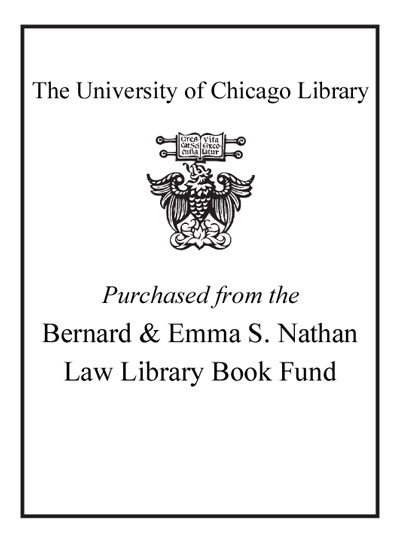Securing dignity and freedom through human rights : Article 22 of the Universal Declaration of Human Rights /
Saved in:
| Author / Creator: | Diller, Janelle M. |
|---|---|
| Imprint: | Leiden ; Boston : Martinus Nijhoff Publishers, 2012. |
| Description: | vii, 232 p. ; 25 cm. |
| Language: | English |
| Series: | The universal declaration of human rights ; 3 Universal Declaration of Human Rights ; 3. |
| Subject: | |
| Format: | Print Book |
| URL for this record: | http://pi.lib.uchicago.edu/1001/cat/bib/8626156 |
| Summary: | The Universal Declaration of Human Rights recognizes that social and economic welfare is essential for human dignity, freedom to develop as a person, and ultimately "social security" in the broad sense of social justice. This study examines the text, context, and origins of article 22 which establish an entitlement to the economic, social and cultural (ESC) rights indispensable for wellbeing. By using legal rights to define socially just conduct that secures human dignity, article 22 reorients philosophical approaches to the conception and processes of social justice. The individual, the community and the State are collaboratively engaged in the realization of ESC rights, through national effort and international cooperation. ESC rights must be implemented as a whole, not selectively; this approach serves a functional purpose as well since, in operation, the rights are largely interdependent. The study analyzes the current tendency to fragment the pursuit of ESC rights into selective and uncoordinated initiatives, and proposes adjustments to the theory and practice governing the responsibility and conduct of States, international organizations, the business sector, and other private actors. <br><br>The legal principles rooted in article 22 create a vital connection between human rights and development that reshapes development cooperation, in relations between States and in multilateral efforts like the Millennium Development Goals and policies of international financial institutions. Development success needs to be redefined to include reducing inequality and assisting the most vulnerable and marginalized. Development processes should integrate methods that ensure participation, transparency and accountability. Even so, democratic processes are no guarantee that ESC rights will be taken seriously, nor do they necessarily lead to full elimination of economic and social inequality. Judicial enforcement and solidarity among private actors, and attention to the synergies that realization of one ESC right provides another are equally important to making the entitlement a reality for all. <br><br>The approach to human rights in article 22 acts as a compass in the pursuit of social justice. Its course to realizing ESC rights reaches beyond mere assets and material comforts, and surpasses quantitative assessments of equality and non-discrimination, critical as these may be. Rather, progress toward social justice through ESC rights is measured by assessing whether the opportunities, resources and freedoms provided to people are sufficient for their full and free development as human beings, individually and as members of society. Article 22 affirms the vision of a just society in which dignity and personal development are secured with ESC rights that offer the chance for well-being to everyone.<br><br>This book is the third volume in The Universal Declaration of Human Rights Series. The Series will consist of approximately 20 volumes, each dealing with a substantive right (or group of rights) set forth in the Universal Declaration of Human Rights (UDHR). Each volume is authored by an expert in human rights generally and in the particular subject addressed. Without losing sight of the political context in which the implementation of human rights must occur, each book provides a comprehensive, legally-oriented analysis of the rights concerned, including an examination of the legislative history of the text of each right as adopted in 1948, the right's subsequent articulation and interpretation by international bodies and in subsequent international instruments, and a survey of state practice in defining and enforcing the right.<br> |
|---|---|
| Physical Description: | vii, 232 p. ; 25 cm. |
| Bibliography: | Includes bibliographical references and index. |
| ISBN: | 9789004209398 (cloth : alk. paper) 9004209395 (cloth : alk. paper) 9789004224940 (ebk.) 9004224947 (ebk.) |

